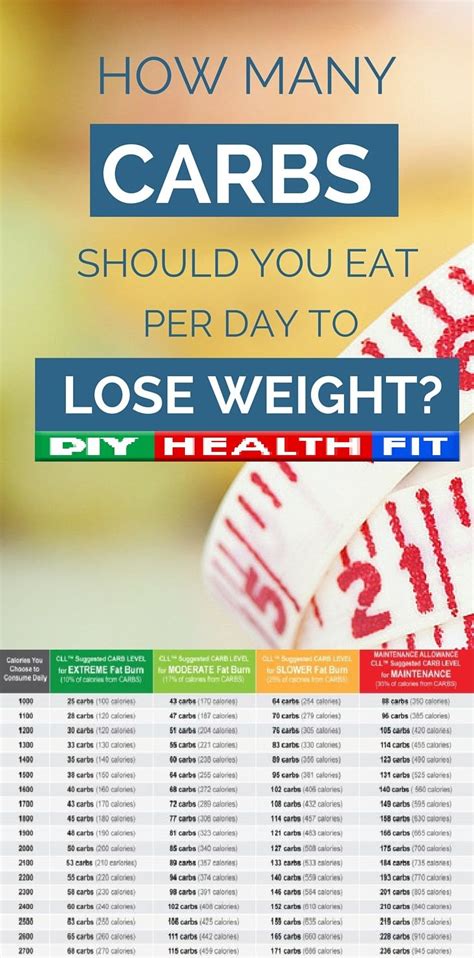How Many Carbs a Day to Lose Weight? A Comprehensive Guide
Losing weight often involves adjusting your diet, and carbohydrates are a key component to consider. The question of "how many carbs a day to lose weight" doesn't have a one-size-fits-all answer. It depends on several factors, including your individual metabolism, activity level, and overall health goals. This guide will help you navigate the complexities of carbohydrate intake for weight loss.
Understanding the Role of Carbohydrates in Weight Loss
Carbohydrates are one of the three macronutrients (along with protein and fat) that provide your body with energy. They're broken down into glucose, which fuels your cells. However, excess carbohydrates that aren't used for energy are stored as glycogen in your muscles and liver, and eventually as fat if glycogen stores are full. This is why managing carbohydrate intake is crucial for weight loss.
Types of Carbohydrates: Good vs. Bad
Not all carbohydrates are created equal. Distinguishing between good and bad carbs is vital for effective weight management:
-
Good Carbohydrates (Complex Carbs): These are digested slowly, providing sustained energy and keeping you feeling full longer. Examples include whole grains (brown rice, quinoa, oats), fruits, vegetables, and legumes.
-
Bad Carbohydrates (Simple Carbs): These are rapidly digested, leading to quick spikes in blood sugar and insulin levels, followed by energy crashes and increased cravings. Examples include refined sugars, white bread, pastries, and sugary drinks. Limiting these is crucial for weight loss.
Determining Your Ideal Carb Intake for Weight Loss
There's no magic number for everyone. The optimal daily carbohydrate intake for weight loss varies significantly. However, several approaches can help you determine a suitable range:
1. The Percentage Approach
Many weight loss strategies suggest reducing carbohydrate intake to a certain percentage of your daily calorie intake. Popular ranges include:
-
Low-Carb Diets (20-50g): These diets severely restrict carbohydrates, often focusing on high protein and fat. While effective for some, they may not be suitable for everyone and can have side effects.
-
Moderate-Carb Diets (100-150g): These diets allow for a moderate intake of carbohydrates, incorporating complex carbs while limiting simple carbs. This approach is often more sustainable in the long term.
-
High-Carb Diets (200g+): These diets emphasize complex carbohydrates, paired with moderate protein and healthy fats. They are often preferred by athletes or those with high activity levels. Note: Even on high-carb diets, focusing on nutrient-dense carbs is crucial.
Important Considerations: These percentages are guidelines, and your actual carb needs depend on factors like your weight, activity level, and individual metabolism.
2. Tracking Your Macros
Tracking your macronutrients (carbohydrates, proteins, and fats) using a food diary or app can provide valuable insights into your daily intake. Experiment with different carb levels to see how your body responds and adjust accordingly.
3. Listening to Your Body
Pay attention to how you feel after consuming different amounts of carbohydrates. Do you experience energy crashes? Increased cravings? Bloating? Adjust your intake based on these cues.
Beyond the Numbers: Other Factors to Consider
While the number of carbs matters, other factors significantly influence weight loss:
-
Calorie Deficit: Ultimately, weight loss comes down to consuming fewer calories than you burn. Even with a moderate carb intake, you won't lose weight if you're exceeding your daily caloric needs.
-
Exercise: Regular physical activity boosts your metabolism and aids weight loss, allowing you to consume more carbohydrates while still achieving your goals.
-
Protein and Fiber Intake: Adequate protein keeps you feeling full and supports muscle mass, while fiber aids digestion and satiety.
-
Hydration: Drink plenty of water throughout the day to support your metabolism and overall well-being.
Conclusion: Finding Your Perfect Carb Balance
The ideal number of carbs for weight loss is individual and depends on several factors. Experimenting with different approaches, tracking your macros, and listening to your body will help you find the right balance. Remember that sustainable weight loss is a journey, not a race. Focus on making healthy, long-term changes to your diet and lifestyle. Consulting a registered dietitian or healthcare professional can provide personalized guidance and support.
